★★★★
“When child stars grow up”
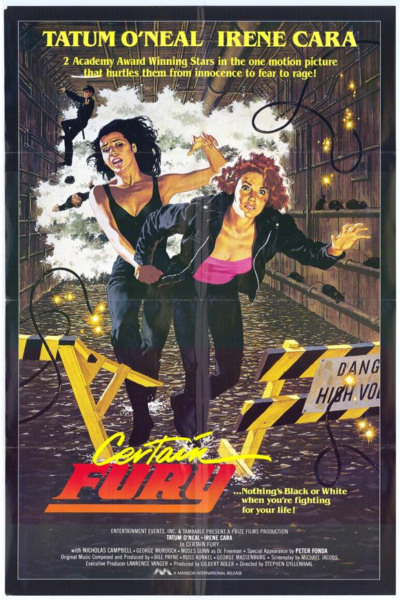 Child actors have a difficult challenge facing them when the reach adulthood. They are not the sweet kids anymore that everyone loves and wants to cuddle with. They can’t rely on the cuteness factor anymore that made them once so successful. That can lead to tragedy. How many former kid stars became drug addicts or committed suicide because they couldn’t return to that time anymore, when in a way the world was theirs? Others were smart enough to leave film business behind them and start a new career e. g. Shirley Temple. But a few of them are indeed lucky. they stay calm amidst all the thunderstorms of early successes and puberty, manage to stay relevant to audiences and even find a new footing and grown-up roles, that cement their careers as everlasting film stars. Actresses like Sophie Marceau or Jodie Foster come to mind.
Child actors have a difficult challenge facing them when the reach adulthood. They are not the sweet kids anymore that everyone loves and wants to cuddle with. They can’t rely on the cuteness factor anymore that made them once so successful. That can lead to tragedy. How many former kid stars became drug addicts or committed suicide because they couldn’t return to that time anymore, when in a way the world was theirs? Others were smart enough to leave film business behind them and start a new career e. g. Shirley Temple. But a few of them are indeed lucky. they stay calm amidst all the thunderstorms of early successes and puberty, manage to stay relevant to audiences and even find a new footing and grown-up roles, that cement their careers as everlasting film stars. Actresses like Sophie Marceau or Jodie Foster come to mind.
The latter is a particular success story, making the transition from child actor to grown-up movie star. In the 70s she was the regular tomboy in Disney family comedies and at one point was even under consideration to play a young Princess Leia in what would become the first Star Wars movie. Her constant competitor in tomboy roles was Tatum O’Neal. the youngest ever to win an Oscar, for her performance in Peter Bogdanovich’s beautiful tragic-comedy Paper Moon (1973), next to her father. She also played a tomboy in The Bad News Bears as Walter Matthau’s daughter. Coincidentally, Paper Moon became a TV series in which Jodie Foster played O’Neal’s role! Unfortunately, O’Neal went through the usual teen-phase, then slowly disappeared from the screen. Later she made headlines for her troubled marriage and addiction. Just a couple of years ago again when she was taken in by police because she wanted to buy some drugs.
Why this long introduction? It’s because I think it’s kind of unjust how her career went – though everyone is responsible for their own decisions and you never really can plan to be in “successful movies“. But contrast the career of Foster who had a similar basis, but persevered after making some less interesting movies for much of the 1980’s. Her second career in films began with the Oscar for Accused (1988) and then moved on from there to bigger things. It just shows that you may have talent and get credit for some time in Hollywood. But if the right movie and role doesn’t come along, and you make some bad decisions, anyone’s promising movie career can just evaporate in front of your eyes.
There are movies that are crossroads that can lead to other – maybe better – things or open up a new role type for you, maybe an entire new genre. My feeling is that Certain Fury (title in German cinemas: “In the heat of New York”) could maybe have been that for O’Neal. It just wasn’t to be.
From 1985, it checks all the boxes for a typical 80’s action buddy movie, beginning with the story. At a mass trial of young girls, responsible for different criminal acts, two prostitutes start a shoot-out in the courtroom that has to be seen to be believed. A remarkable act of violence which you hardly would ever find in a modern action movie of today where everything is usually very neat and clean. Scarlet (O’Neal) who has killed a man – in self-defence as we find out later – and Tracey (Cara, who won an Oscar herself for her song in Flashdance shortly before; the title song here is also by her) are among those who take their chances in the ensuing chaos. They run from the court building into the streets, chased by the police.
They are more fortunate than one of the prostitutes, who gets shot into the back. Really, this movie could only exist in the 80’s, and would be unthinkable for today’s Hollywood. The pair make it into the sewers, and survive an underground explosion, caused by a cop’s lit cigarette igniting sewer gas. They eventually meet one of Scarlet’s lovers named Sniffer (Nicholas Campbell) who is an especially disgusting creature. He obviously makes porn and after Scarlet has left, tries to rape Tracey in the shower. While not a particularly graphic scene, it might well work against the possibility of the film being released in the US again.
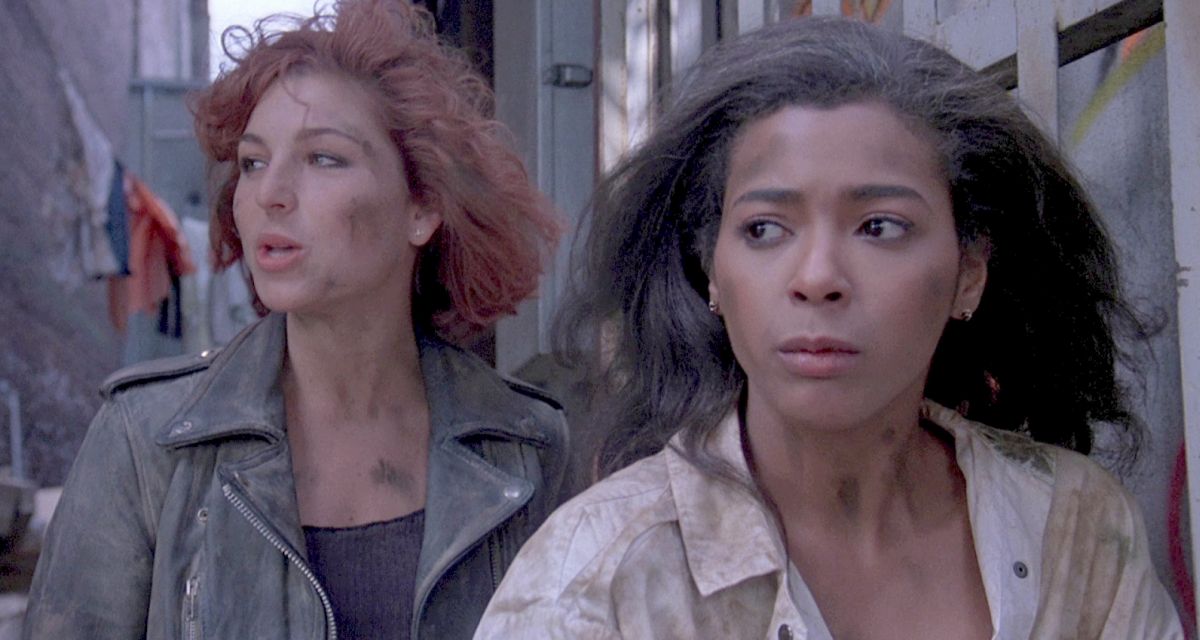 Scarlet tries her best to get help from another former lover, the arrogant, rich, criminal Rodney, who turns out to be played by Peter Fonda. Did he ever get an Oscar for one of his movies? I don’t think so. [Jim: no, just nominated for Ulee’s Gold] It’s so strange because he’s the most well-known actor in this movie. But he likes her as lttle as her other ex, and cuts her cheek with a knife. She just returns right on time to escape with Tracey before Rodney’s men arrive to get her after he made a deal with the police. Scarlet has taken some of Sniffer’s drugs and manage to sell them in what looks like a giant derelict house in the slums. It really is a movie from Reagan era! ;-)) Her persecutor arrives on the scene, injects Tracey with drugs, sets fire to the house and has a final fight with Scarlet before meeting a fiery death.
Scarlet tries her best to get help from another former lover, the arrogant, rich, criminal Rodney, who turns out to be played by Peter Fonda. Did he ever get an Oscar for one of his movies? I don’t think so. [Jim: no, just nominated for Ulee’s Gold] It’s so strange because he’s the most well-known actor in this movie. But he likes her as lttle as her other ex, and cuts her cheek with a knife. She just returns right on time to escape with Tracey before Rodney’s men arrive to get her after he made a deal with the police. Scarlet has taken some of Sniffer’s drugs and manage to sell them in what looks like a giant derelict house in the slums. It really is a movie from Reagan era! ;-)) Her persecutor arrives on the scene, injects Tracey with drugs, sets fire to the house and has a final fight with Scarlet before meeting a fiery death.
Police inspector Lt. Speier (Murdock) is meanwhile trying to find the girls, together with Tracey’s father, Dr. Freeman (Moses Gunn, e. g. a gangster boss in Shaft). The theme of Black and White working together is repeated in these characters, as in the girls themselves. This is a very positive, uplifting message but – unlike today where many movies have become a lesson about racism and discrimination – it’s not a lecture, it’s inherent in the movie’s story and characters. It makes this much more palatable for me than modern movies who lose the entertainment aspect in the background, while putting their lessons in your face.
As the two girls are believed to be dead (Tracey reads it in the newspapers; Scarlet can’t read) they consider a new life together, free in the mountains. But Scarlet doesn’t believe it’s possible, and in her brusque manner tosses Tracey away from her. When the police arrive, Scarlet still keeps on walking on a bridge, so they shoot her in the back. But the last shot shows Scarlet being hold by Tracey and Dr. Freeman saying it is not so serious, and was only into the shoulder. Guess that’s a happy ending… or something like that!
It’s all tough stuff. Certain Fury isn’t an “important” movie; indeed, you could even argue whether or not it is a “good” movie. As a matter of fact, I had a strong feeling when watching this movie that Charles Bronson might come around the corner any moment to “clean up the slums of New York“. It really looks like one of those cheap Cannon flicks that were such guilty pleasures in the video stores of the 80s (and might be even more now!). And, indeed, just a short time later, Cannon had Charlie handcuffed to a snotty teen, and sent on a similar road trip through gangster-land in Murphy’s Law (1986). Though that movie more or less dropped any social issues of the O’Neal-Cara-film and concentrated on the bloody action of Bronson versus the rest of the criminal underworld.
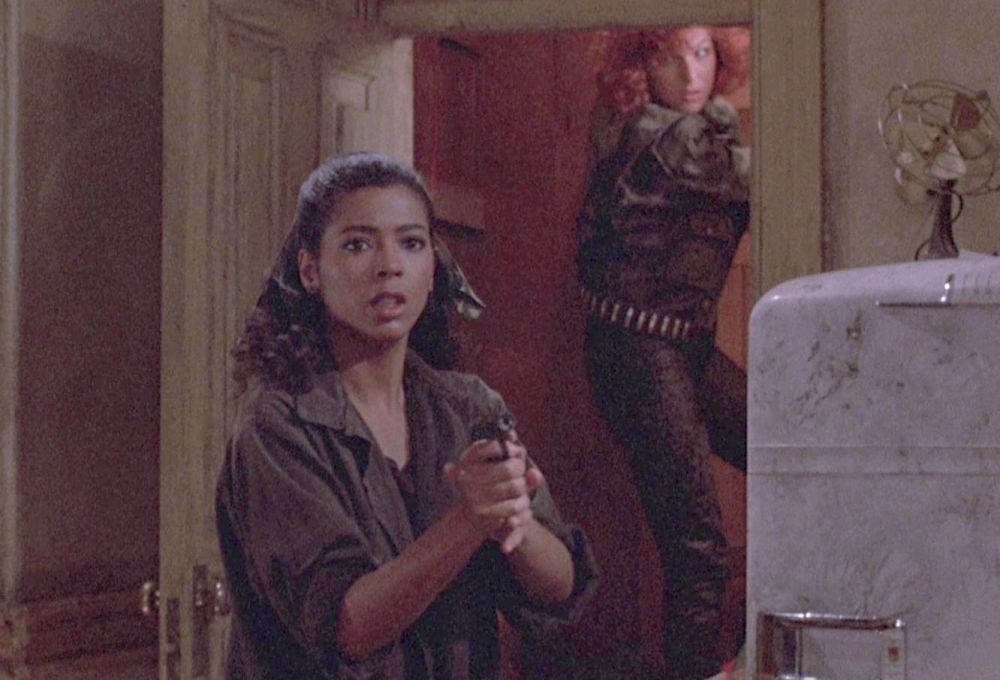 I note also obvious similarities to the Stanley Kramer-classic The Defiant Ones (1958) with Tony Curtis and Sidney Poitier. Scarlet is not nice and understanding, she is street-wise, prone to anger and absolutely insulting. Heck, she even drops the N-word to Tracey. So the inspiration is arguably there. And who knows, maybe it wasn’t an accident that a year after this movie, The Defiant Ones got an update in a 1986 television movie with Robert Urich and Carl Weathers (also a very watchable movie). [Jim: there’s also Black Mama, White Mama, in which Pam Grier and Margaret Markov are another inter-racial pairing, who escape from prison handcuffed together]
I note also obvious similarities to the Stanley Kramer-classic The Defiant Ones (1958) with Tony Curtis and Sidney Poitier. Scarlet is not nice and understanding, she is street-wise, prone to anger and absolutely insulting. Heck, she even drops the N-word to Tracey. So the inspiration is arguably there. And who knows, maybe it wasn’t an accident that a year after this movie, The Defiant Ones got an update in a 1986 television movie with Robert Urich and Carl Weathers (also a very watchable movie). [Jim: there’s also Black Mama, White Mama, in which Pam Grier and Margaret Markov are another inter-racial pairing, who escape from prison handcuffed together]
While I mainly saw and enjoyed Certain Fury for what it was – enjoyable over-the-top action trash – the movie nevertheless put some fingers into social issues that may be as relevant today in America, as they were almost 40 years ago. Racism, social class differences, uncontrollable no-go areas, criminality, poverty, drugs and – yes – even police brutality can be witnessed in this movie. Though after the bloody mass shoot-out in the courtroom at the beginning, where hardly anyone is left alive, you can maybe understand the over-reaction of the police! I don’t think this almost forgotten little movie offers any solutions to these myriad of problems. But it at least suggests that even very different people can understand and support each other, even if it needs an extreme emergency to do so. It’s a theme also mirrored in the very different duo of the white police inspector and the black surgeon.
Now, I wouldn’t recommend the movie if you want a high-quality social drama: too much Charles Bronson in it, if you ask me. But it’s enjoyable action trash, and interesting that at one point Tatum O’Neal could have become an action or thriller star. The latter genre was, after all, the one in which Jodie Foster found her greatest commercial success. O’Neal’s acting is very good, I think; there’s nothing left of that little brat she embodied in the 70s. Her Scarlet is an interesting character of the “hard shell, soft core” variety. She could maybe have continued in this manner; who knows? Instead of that she chose to marry tennis player John McEnroe, which obviously wasn’t the best move for her in any way.
Here’s a little confession: I feel a certain emotional connection to this movie as I discovered the trailer online and then suggested it to a German DVD label who promptly released the movie on DVD here in Germany (even with an audio commentary of two film historians!) – I think my ego is going to explode! ;-) And an interesting final tidbit: In the German-language version Tatum O’Neal is played by the voice artist who regularly dubs… Jodie Foster!
Dir: Stephen Gyllenhaal
Star: Tatum O’Neal, Irene Cara, Nicholas Campbell, George Murdock
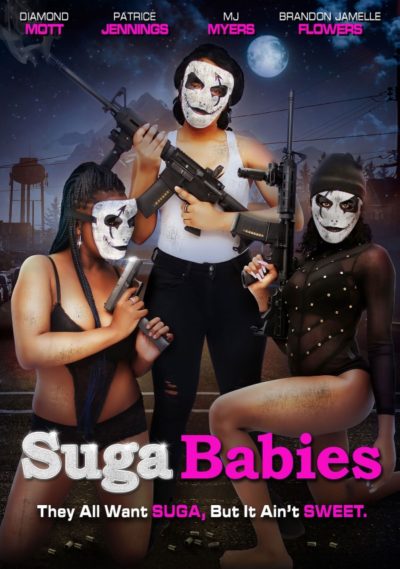 As usual, I begin with the normal disclaimer, that I’m about as far from the target audience as you could imagine. For this is an inner-city story about a drug war between three rival gangs in South Carolina: the Guardians, the Dynasty and the GeeChees. That said, however, there have been other films, with not dissimilar themes, which I have enjoyed. Most obviously, I am not the target audience for Pam Grier’s seventies output either. But those still kick ass. Even among the modern entries, there have been ones like Candy, which have felt authentic in their depiction of urban life. This, on the other hand, feels more like a no-budget hip-hop video.
As usual, I begin with the normal disclaimer, that I’m about as far from the target audience as you could imagine. For this is an inner-city story about a drug war between three rival gangs in South Carolina: the Guardians, the Dynasty and the GeeChees. That said, however, there have been other films, with not dissimilar themes, which I have enjoyed. Most obviously, I am not the target audience for Pam Grier’s seventies output either. But those still kick ass. Even among the modern entries, there have been ones like Candy, which have felt authentic in their depiction of urban life. This, on the other hand, feels more like a no-budget hip-hop video.




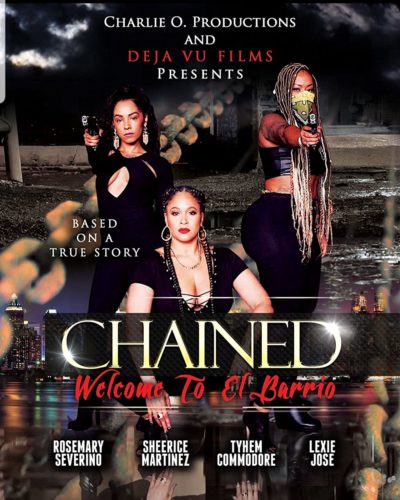
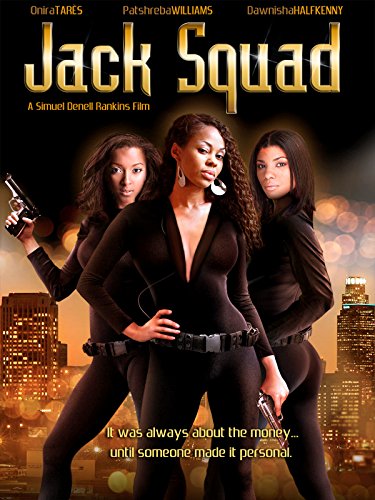 At 85 minutes, this might have been fine. For it’s a fairly simple tale, of three women who decide to escape their financial woes by drugging and robbing married men, banking on their victims not being willing to involve the authorities. While this initially works as planned, inevitably, they end up targeting the wrong guy, a minion of feared drug dealer Grey (Anderson). How evil is he? Grey appears to have an employee whose full-time job is to fan him. That’s some Evil Overlord style, right there. Grey doesn’t just want his stolen money back, he wants the trio to continue their activities – for his benefit. And that isn’t the only problem which the trio face, with Tony, the estranged other half of Dawn (Tares), unhappy at her having escaped their abusive relationship.
At 85 minutes, this might have been fine. For it’s a fairly simple tale, of three women who decide to escape their financial woes by drugging and robbing married men, banking on their victims not being willing to involve the authorities. While this initially works as planned, inevitably, they end up targeting the wrong guy, a minion of feared drug dealer Grey (Anderson). How evil is he? Grey appears to have an employee whose full-time job is to fan him. That’s some Evil Overlord style, right there. Grey doesn’t just want his stolen money back, he wants the trio to continue their activities – for his benefit. And that isn’t the only problem which the trio face, with Tony, the estranged other half of Dawn (Tares), unhappy at her having escaped their abusive relationship.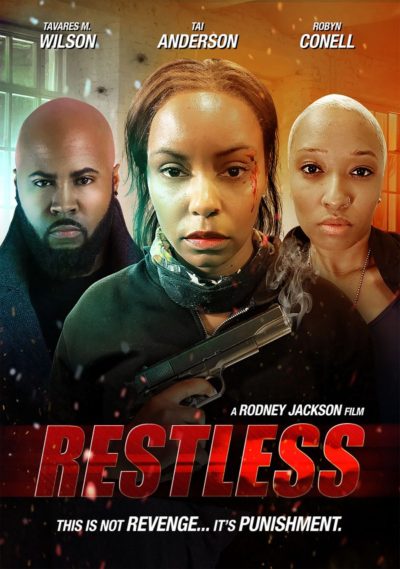
 Child actors have a difficult challenge facing them when the reach adulthood. They are not the sweet kids anymore that everyone loves and wants to cuddle with. They can’t rely on the cuteness factor anymore that made them once so successful. That can lead to tragedy. How many former kid stars became drug addicts or committed suicide because they couldn’t return to that time anymore, when in a way the world was theirs? Others were smart enough to leave film business behind them and start a new career e. g. Shirley Temple. But a few of them are indeed lucky. they stay calm amidst all the thunderstorms of early successes and puberty, manage to stay relevant to audiences and even find a new footing and grown-up roles, that cement their careers as everlasting film stars. Actresses like Sophie Marceau or Jodie Foster come to mind.
Child actors have a difficult challenge facing them when the reach adulthood. They are not the sweet kids anymore that everyone loves and wants to cuddle with. They can’t rely on the cuteness factor anymore that made them once so successful. That can lead to tragedy. How many former kid stars became drug addicts or committed suicide because they couldn’t return to that time anymore, when in a way the world was theirs? Others were smart enough to leave film business behind them and start a new career e. g. Shirley Temple. But a few of them are indeed lucky. they stay calm amidst all the thunderstorms of early successes and puberty, manage to stay relevant to audiences and even find a new footing and grown-up roles, that cement their careers as everlasting film stars. Actresses like Sophie Marceau or Jodie Foster come to mind. Scarlet tries her best to get help from another former lover, the arrogant, rich, criminal Rodney, who turns out to be played by Peter Fonda. Did he ever get an Oscar for one of his movies? I don’t think so. [Jim: no, just nominated for Ulee’s Gold] It’s so strange because he’s the most well-known actor in this movie. But he likes her as lttle as her other ex, and cuts her cheek with a knife. She just returns right on time to escape with Tracey before Rodney’s men arrive to get her after he made a deal with the police. Scarlet has taken some of Sniffer’s drugs and manage to sell them in what looks like a giant derelict house in the slums. It
Scarlet tries her best to get help from another former lover, the arrogant, rich, criminal Rodney, who turns out to be played by Peter Fonda. Did he ever get an Oscar for one of his movies? I don’t think so. [Jim: no, just nominated for Ulee’s Gold] It’s so strange because he’s the most well-known actor in this movie. But he likes her as lttle as her other ex, and cuts her cheek with a knife. She just returns right on time to escape with Tracey before Rodney’s men arrive to get her after he made a deal with the police. Scarlet has taken some of Sniffer’s drugs and manage to sell them in what looks like a giant derelict house in the slums. It  I note also obvious similarities to the Stanley Kramer-classic The Defiant Ones (1958) with Tony Curtis and Sidney Poitier. Scarlet is not nice and understanding, she is street-wise, prone to anger and absolutely insulting. Heck, she even drops the N-word to Tracey. So the inspiration is arguably there. And who knows, maybe it wasn’t an accident that a year after this movie, The Defiant Ones got an update in a 1986 television movie with Robert Urich and Carl Weathers (also a very watchable movie). [Jim: there’s also
I note also obvious similarities to the Stanley Kramer-classic The Defiant Ones (1958) with Tony Curtis and Sidney Poitier. Scarlet is not nice and understanding, she is street-wise, prone to anger and absolutely insulting. Heck, she even drops the N-word to Tracey. So the inspiration is arguably there. And who knows, maybe it wasn’t an accident that a year after this movie, The Defiant Ones got an update in a 1986 television movie with Robert Urich and Carl Weathers (also a very watchable movie). [Jim: there’s also 
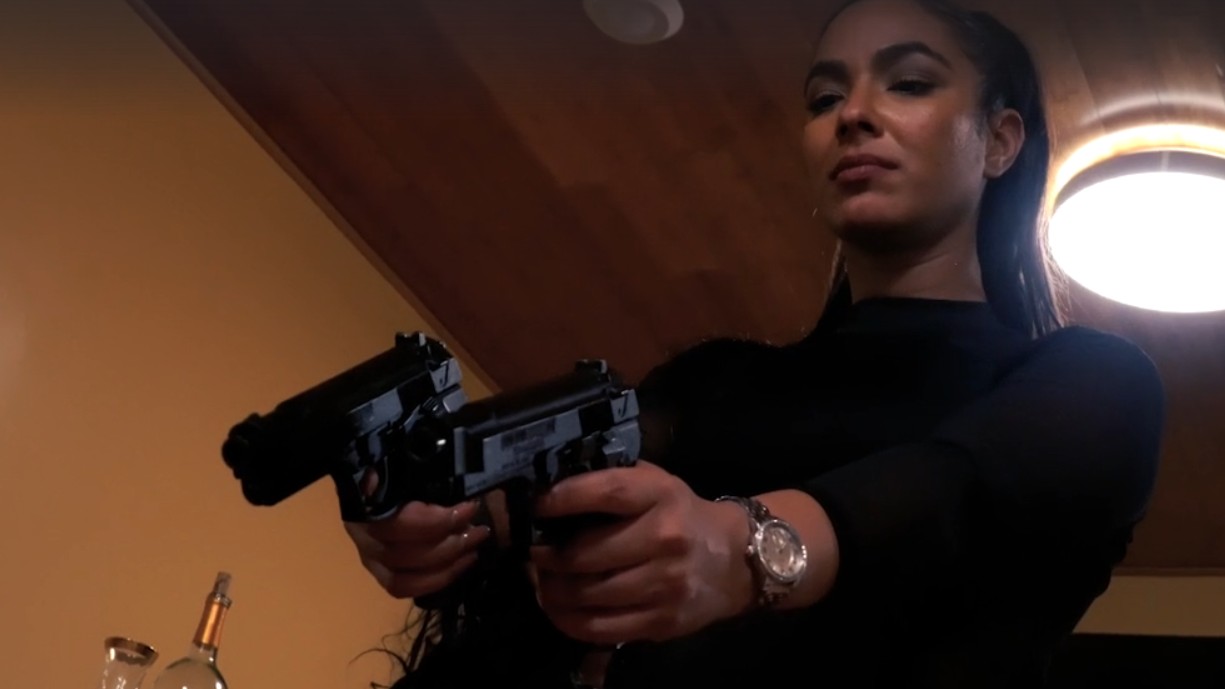
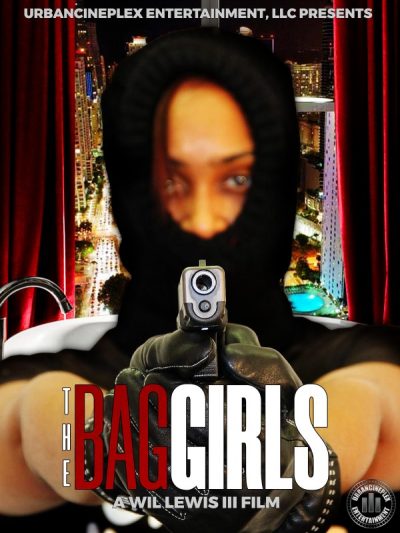
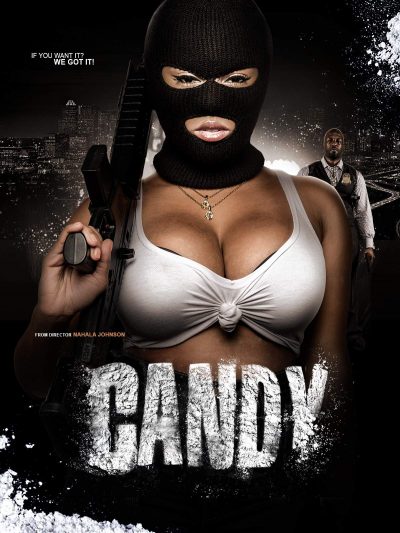 You’ll probably understand why that cover picture got me to pause my casual scrolling through Amazon Prime. Well played, movie producers. Well played… Likely inevitably, the film didn’t quite live up to the advertising, mostly due to a significant lack of plot. The film barely runs 65 minutes, before we get to a sloth-like end-credit crawl, and there’s probably not enough story-line to fill a music video for one of the gangster rap songs which pepper the soundtrack. Yet, in terms of atmosphere and setting, it
You’ll probably understand why that cover picture got me to pause my casual scrolling through Amazon Prime. Well played, movie producers. Well played… Likely inevitably, the film didn’t quite live up to the advertising, mostly due to a significant lack of plot. The film barely runs 65 minutes, before we get to a sloth-like end-credit crawl, and there’s probably not enough story-line to fill a music video for one of the gangster rap songs which pepper the soundtrack. Yet, in terms of atmosphere and setting, it 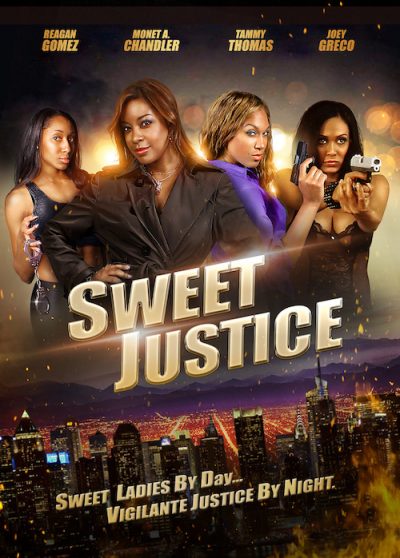 Four women run a charitable agency in Texas, helping single mothers track down and obtain child support payments from deadbeat dads. However, they don’t limit themselves to the simple serving of legal papers. The women adopt a more… hands-on approach, shall we say, first luring their targets in with the promise of sex, then threatening them at gunpoint, to make sure they pay up. For obvious reasons, the cops soon take interest in this string of unusual armed robberies. Meanwhile, the city’s white mayor, is dealing with a domestic crisis of her own, thanks to her daughter having had a child by (gasp!) a black man.
Four women run a charitable agency in Texas, helping single mothers track down and obtain child support payments from deadbeat dads. However, they don’t limit themselves to the simple serving of legal papers. The women adopt a more… hands-on approach, shall we say, first luring their targets in with the promise of sex, then threatening them at gunpoint, to make sure they pay up. For obvious reasons, the cops soon take interest in this string of unusual armed robberies. Meanwhile, the city’s white mayor, is dealing with a domestic crisis of her own, thanks to her daughter having had a child by (gasp!) a black man.